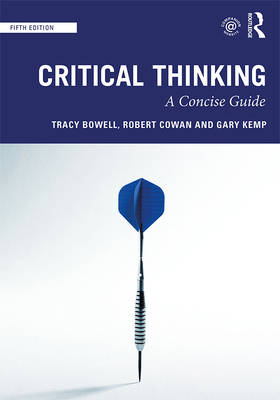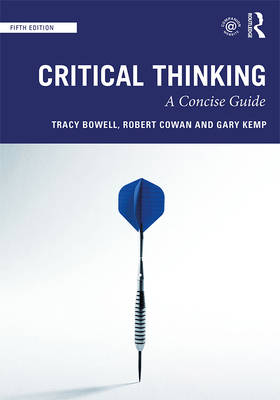
- Retrait gratuit dans votre magasin Club
- 7.000.000 titres dans notre catalogue
- Payer en toute sécurité
- Toujours un magasin près de chez vous
- Retrait gratuit dans votre magasin Club
- 7.000.0000 titres dans notre catalogue
- Payer en toute sécurité
- Toujours un magasin près de chez vous
Description
We are frequently confronted with arguments. Arguments are attempts to persuade us - to influence our beliefs and actions - by giving us reasons to believe this or that. Critical Thinking: A Concise Guide will equip students with the concepts and techniques used in the identification, analysis and assessment of arguments whatever the subject matter or context. Through precise and accessible discussion, this book provides the tools to become a successful critical thinker, one who can act and believe in accordance with good reasons, and who can articulate and make explicit those reasons.
Key topics discussed include:
- Core concepts in argumentation
- How language can serve to obscure or conceal the real content of arguments
- How to distinguish argumentation from rhetoric
- How to avoid common confusions surrounding words such as 'truth', 'knowledge' and 'opinion'
- How to identify and evaluate the most common types of argument
- How to distinguish good reasoning from bad in terms of deductive validity and induction.
This fifth edition has been revised and extensively updated throughout, including a significantly expanded range of 'complete examples', the introduction of Venn diagrams and the discussion of fake news and related phenomena arising in the contemporary scene.
The dynamic Routledge Critical Thinking companion website provides thoroughly updated resources for both instructors and students, including new examples and case studies, flashcards, sample questions, practice questions and answers, student activities and a testbank of questions for use in the classroom. Visit www.routledge.com/cw/bowell.
Spécifications
Parties prenantes
- Auteur(s) :
- Editeur:
Contenu
- Nombre de pages :
- 348
- Langue:
- Anglais
Caractéristiques
- EAN:
- 9780815371434
- Date de parution :
- 20-08-19
- Format:
- Livre broché
- Format numérique:
- Trade paperback (VS)
- Dimensions :
- 173 mm x 246 mm
- Poids :
- 589 g

Les avis
Nous publions uniquement les avis qui respectent les conditions requises. Consultez nos conditions pour les avis.






